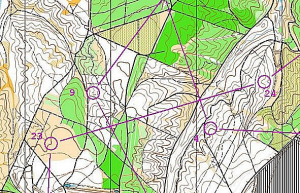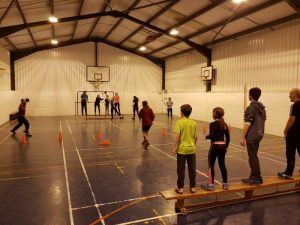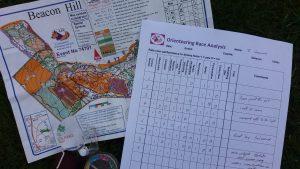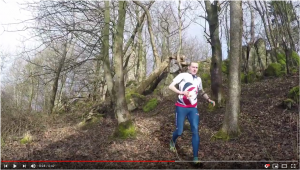Learn the Symbols
| Map symbols and Control descriptions | Links to the Maprunner website which has pdfs to download of map symbols and control descriptions. Also a handy Control Description Quiz. |
Links to O-Skills Websites and Videos
Get Up To Speed – An excellent collection of 5 minute videos covering key orienteering skills presented by the GB Team.
Improving Your O-Skills – Norfolk Orienteering Club’s guide to a wide range of skills
Catching Features – A computer game of orienteering. You can even have online competitions with other orienteers.
Attackpoint – USA based web page which is themed on Performance training for Orienteering
Routegadget – A website with maps from past events and the routes some people took. See the link at the top of the Results column.
Control Description Quiz – Online quiz which will help you learn IOF pictorial descriptions
If you know of any websites or videos that are worth us linking to, please send the link to

Build Your Skill Steps from White to Green
Step-by Step
The step system builds the skills of orienteering sequentially and applies them to appropriate courses one step at a time.
At each level, the orienteer should a) master the skills; b) apply techniques appropriately; c) adjust speed to deal with the technical difficulty; and e) use relocation techniques appropriate to the skill level. The skills are summarised below.
Step 1 – (White)
Orientating the map to line features; understanding map colours and common symbols; holding the map with a thumb in place to maintain position; following line features (‘handrails’); making decisions at control points.
Step 2 – (Yellow)
Checking the map at significant points between controls (‘check points’); making decisions at handrail junctions; using catching features; judging distance by sight (e.g. half way between).
Step 3 ¬- (Orange)
Cutting corners and aiming off; using catching features; using a compass to orientate the map and determine direction of travel; interpreting all map symbols to visualise the terrain; judging specific distances (e.g. 100m along track); simplifying legs with several check points; using attack points; making simple route choices;
Step 4 – (Light green)
Using rough compass directions and catching features on long legs and more precise bearings on short legs; judging distance by pacing; reading simple contour shapes; making route choices taking into account speed, distance and secure navigation.
Step 5 – (Green, Blue, Brown)
Navigating using contours only and interpreting complex contour detail; managing long legs with few distinct check points.
Coaching Activities

Club Nights
On Tuesday evenings we meet for a range of fitness, navigation and fun activities. In the Autumn we hold informal MapRuns in various parks and urban areas. After the new year we meet in a gym setting and later on lighter evenings we go to various outdoor venues. This is open to both juniors and seniors. Details are on the Club Night page.
Club Coaching Sessions
When there is demand we can run short post-event sessions; half-day Saturday skills sessions; whole day training on more challenging terrain outside the county.
East Midlands Junior Squad
Juniors, 12 and over, achieving Light Green standard are eligible to be nominated to the Squad by the Coaching Co-ordinator. The squad holds about six sessions a year including 3 to 5 weekends outside of the Regional and occasionally overseas. Activities are subsidised by the EMOA.
National & Regional Coaching Days
Each year a couple of sessions are held in different part of the country/ region and occasionally a group from the club attends.

Useful Documents
Race Analysis Form – A form for competitors to analyse a run leg-by-leg can be downloaded below in either pdf or Word Doc.
| Which Skills do you Use? | ||
| Race Analysis Form – Beginners | ||
| Race Analysis Form – Improvers | ||
| Race Analysis Form – Experienced |
Routines – for developing patterns of thinking and action that save time and improve concentration.




